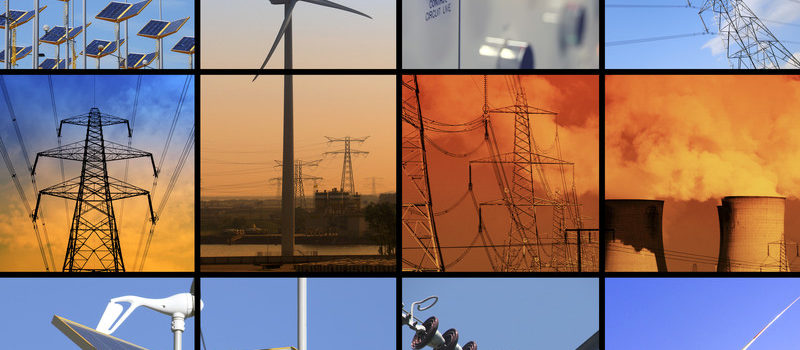Summary of the presentation to the NSF on…
Energy Security, Renewables, and Why the U.S.
Military has Gone Green
A Presentation on 19 June 2018 by:
LTGEN Richard C. Zilmer, USMC (Ret)
CNA Military Advisory Board
“Reliable electricity underpins every facet of American lives. Without it, our homes, our businesses, and our national security engine would grind to a halt….” (CNA Military Advisory Board Report, Nov 2015, “National Security and Assured U.S. Electrical Power”)
An esteemed group of retired U.S. military general officers (three and four-star rank) from Army, Navy, Air Force, and Marines comprise the CNA Military Advisory Board (MAB). Starting in 2006, its charge was to conduct in-depth studies of energy-related issues and the nexus with national security. As the United States moved from a heavy dependence on Middle Eastern oil to more energy independence and the wars in Iraq and Afghanistan took their toll on military operations, the MAB began to explore alternative energy options to enhance the security of our troops in war zones around the world.
NSF was honored to have LTGEN Richard Zilmer, a member of the CNA Military Advisory Board and former Commander of Marine forces in Anbar Province, Iraq (2006-2007), share his perspective of why the U.S. Military needs to “Go Green” to stay safe. Putting the issue in context Gen Zilmer, described a situation at the height of the conflict in Irag in 2006, in which convoys carrying diesel fuel and water became primary targets for insurgent attacks. In WWII a soldier on the battlefield typically needed one gallon of fuel per day to fight. By 2006 in Iraq that number had increased to 22 gallons. That translated to vastly more convoys, which in turn meant more accessible targets for attack and more troops injured or killed on the roads. Armed with this firsthand experience, Gen Zilmer set out to find ways for the Marines to become “lighter, faster, and more lethal on the battlefield” by using less fuel, renewable energy, and fewer convoys.
“I don’t want my kids, kids over here in 20-30 years doing the same thing.”
(Gen Zilmer on watching the Iraqi oilfields burning during the first days of Desert Storm)
Moving the U.S. away from the reliance on Middle Eastern oil to safe, secure energy resources generated at home not only helps us economically, it protects us from having to fight the same battles over and over again in oil-rich deserts abroad. Gen Zilmer highlighted CNA’s formidable task to articulate the national security imperative for advanced energy technologies in their recent report, “Advanced Energy and U.S. National Security,” released in June 2017 and available for download at: https://www.cna.org/CNA_files/PDF/IRM-2017-U-015512.pdf
As the world population grows from 7.4 billion in 2016 to over 9 billion by mid-century, energy demands are expected to increase over 30% globally largely driven by economic growth in China, India, and Africa. Fossil fuels cannot keep pace with increased demand, making advanced energy technologies – wind, solar, geothermal, nuclear, and biofuels – essential to the U.S. economically, politically and militarily.
So, who stands to gain from this rise in demand for renewable energy? And who is leading the charge? As of now, China is in first place investing over $140 billion annually in advanced energy, while the U.S. falls well behind with only $57 billion in annual investments. China is now poised to dominate the global energy markets in the very near future (making our next NSF Forum on China an even more timely topic). Gen Zilmer and other U.S. military leaders view China’s insatiable energy appetite (from both fossil fuels and renewables) as a national security threat. China’s thirst for new energy sources is upending both trade and political alliances globally, underpinning the CNA reports finding that “electrons are as important as elections when it comes to global influence.”
India, on the other hand, presents both national security challenges and opportunities for the U.S. as its population and energy demands increase. A more energy independent India is in the U.S. national interest, but China and Russia are actively racing to feed India’s energy appetite tipping its geopolitical alliances away from the United States. Russia, the world’s largest exporter of fossil fuels (oil and gas), is also expanding its geopolitical influence in Europe as those countries become more reliant on Russian energy, complicating U.S. efforts to counter Russian aggression in Crimea and elsewhere.
And then there is OPEC, which controls 40% of the world’s petroleum trade and 80% of the world’s reserves. Freeing the United States and our allies from the tether to OPEC, and the problematic sociopolitical influences exerted by these countries remains a top priority of U.S. military and national security leaders.
As the United States relinquishes its leadership role in advanced energy technology development and deployment at home and abroad, we are (by default) opening the door to China, Russia, and others to expand their influence in Africa and other countries that the U.S. once valued as allies and partners. Gen Zilmer concluded with the vexing question, “As the world’s energy posture radically changes, should the U.S. continue to exert a leadership role or relinquish this position to others who do not share our commitment to democracy and freedom?”
Hearing his clear and resounding voice for U.S. leadership in advanced energy technologies articulated in Reno, Nevada, prompted the first question about what influence CNA and others are having now over military policy and budgets in Washington, DC. His less than equivocal answer was, DoD is listening, but with a much-reduced sense of urgency due to shifting priorities from this Administration and lower oil prices. His hope is that a younger generation of policy-makers, warfighters, and business innovators will continue the push for renewables regardless of the political landscape
And will nuclear power be part of our advanced energy portfolio in the future? Gen Zilmer succinctly said yes, but…the rest of the world is developing and building new nuclear power resources, while the U.S. is being left behind. The topic of Yucca Mountain was conveniently left unaddressed.
The discussion about nuclear and other energy sources inevitably moved to the topic of energy grid stability. With over 300 attacks on the U.S. energy grid since 2014 and only nine key nodes in the grid, the Gen emphasized that grid stability and security is a major national security issue that can likely only be addressed with the introduction of distributed energy models. Producing and using energy locally, as is done in Nellis AFB in Nevada, reduces risks and increases energy resilience. This topic was covered in detail in another CNA report, “National Security and Assured U.S. Electrical Power,” published Nov 2015 and available for download at: https://www.cna.org/CNA_files/PDF/National-Security-Assured-Electrical-Power.pdf
Following on his prepared remarks about China, Gen Zilmer reemphasized China’s global dominance in advanced energy development accompanies its legacy dependence on fossil fuels. The latter will remain a driving force for its expanding geopolitical engagement for many decades to come. Hearing a senior military officer push advanced energy development begged the question about DoD’s commitment to sustaining requirements that have traditionally driven innovation in the private sector. The Gen reminded us that as long as DoD is trapped by budgetary spending caps military modernization will lag. If new energy resources are critical to improving military readiness then DoD needs to have the flexibility to modernize its operations without compromising ongoing troop deployments.
Closing a stimulating and engaged discussion was a question about what role the public should play in energy and national security. Gen Zilmer artfully reminded us that it is all of our responsibility to keep the dialogue about U.S. energy independence and military readiness at the forefront of our lawmakers’ minds. He, like all of us, don’t want our grandchildren sitting in Kuwait watching the oil fields burn wondering how we got there…yet again.
Lieutenant General Richard C. Zilmer, USMC (Ret.) currently serves on the CNA Military Advisory Board. Former Deputy Commandant for Manpower and Reserve Affairs, Headquarters Marine Corps; Former Commanding General of Multi-National Force, Al Anbar, Iraq Lieutenant General Richard Zilmer retired from active duty in January of 2011 following over 36 years of commissioned service. LTGEN Zilmer graduated with a Bachelor’s degree in Secondary Education from Kutztown University in 1974. He holds a Master of Arts in National Security and Strategic Studies from the College of Naval Warfare.


